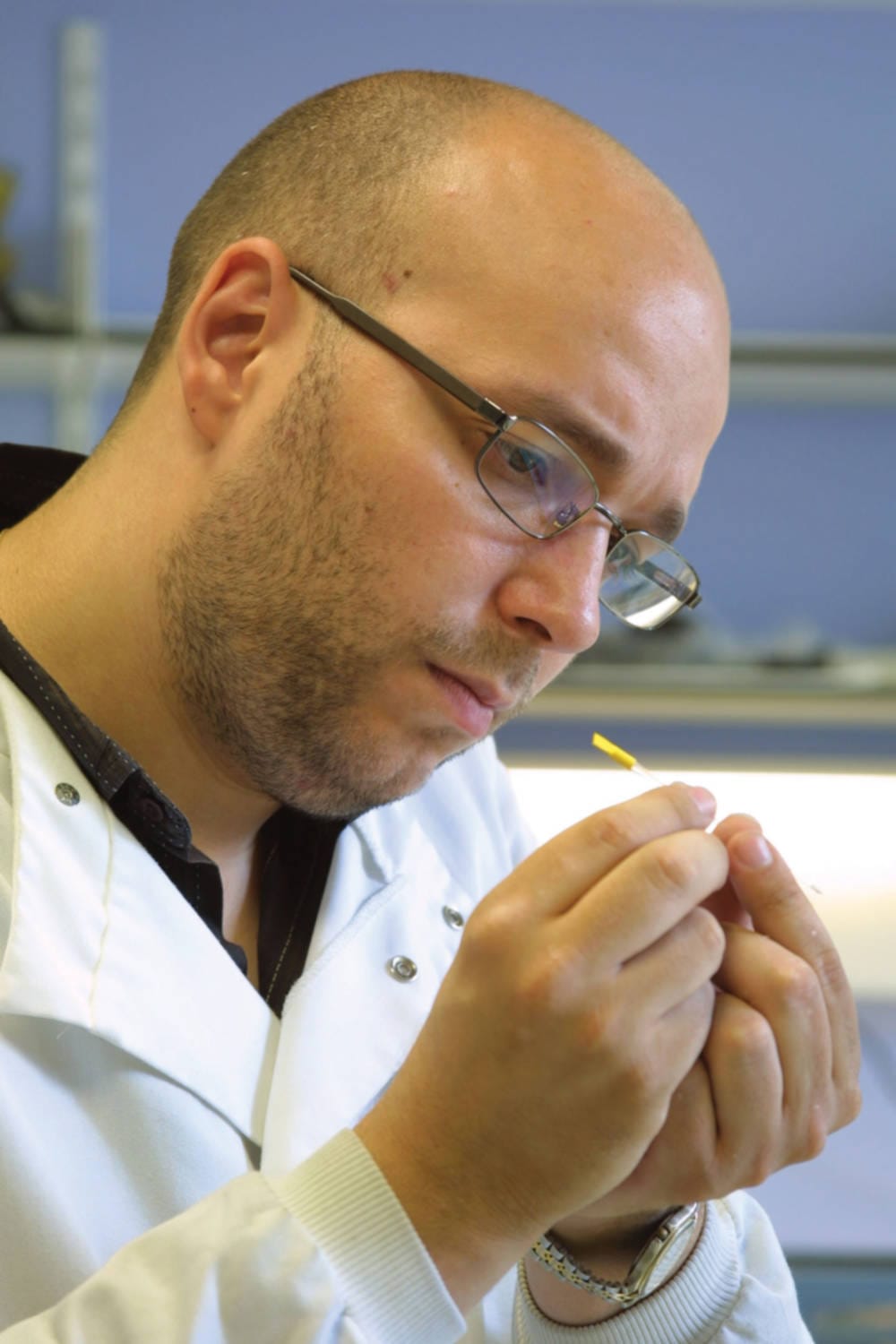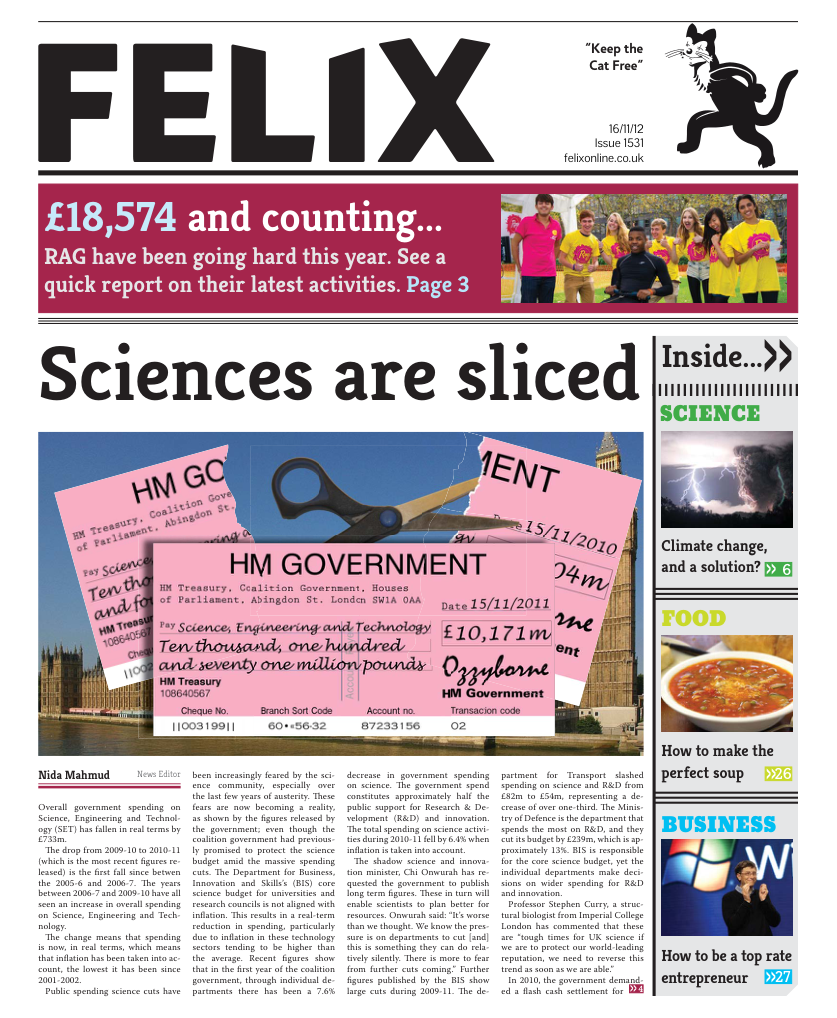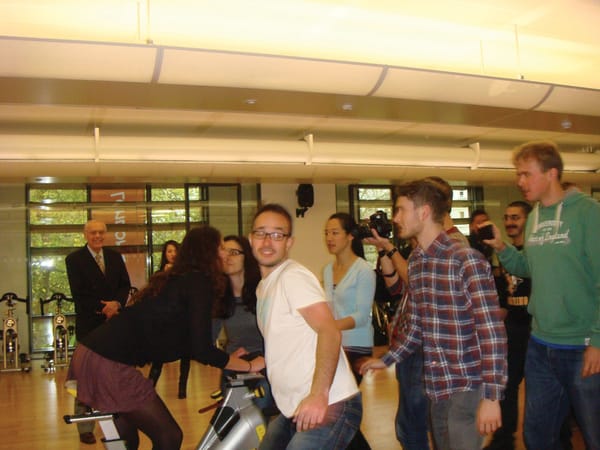More Grants, Less Money
Finally, A Biggie reference in a title...

Imperial has received the highest amount of research council’s money out of all the institutions in the UK.
Imperial has received £76.7 million in 2011-2012, the most out of all the institutions that applied. However, this is a fall of 19% when compared to last year’s total of £94.5 million.
The Times Higher Education (THE) complied data comparing the number of grant applications that were successful and the total amount given for several universities over England.
It was deduced that there were fewer applications compared to last year for Imperial College (360 in 2011-12 compared to 440 in 2010-2011). But since the average success rate of these applications increased, Imperial still received the high amount of funding.
... fewer applications compared to last year for Imperial... but... average success rate of these applications increased
The table produced by THE showed that Imperial ranked first for amount of funding, followed by University College London, University of Edinburgh, University of Cambridge and University of Oxford. The complete table shows the funding, success rate and number of applications for 20 universities across the UK.
University of Cambridge saw a massive drop in their income as their funding fell from £85.2 million in 2010-2011 to £56.2 million in 2011-2012, a 34 per cent decrease. They also had a fall in application numbers so that their success rate increased from 33 per cent to 37 per cent.
Imperial ranked first for amount of funding, followed by University College London, University of Edinburgh, University of Cambridge and University of Oxford
Some institutions that actually had an increase in funding from UK research councils were the universities of Birmingham, Edinburgh and University College London. University of Liverpool had a dramatic rise in funding from £12.3 million to £24 million, therefore almost doubling. The University of Bath had a giantleap in their success rate, from 31 per cent to 42. Jane Millar, Pro Vice-Chancellor for Research at Bath, said she was pleased with the successes, “especially at a time when funding is getting tough”.
She said that the institution’s system of internal academic peer review and “outstanding academic appointments” had made a difference.
The University of Bath had a giantleap in their success rate, from 31 per cent to 42
Some institutions contested the findings of THE, The University of Leeds had apparently seen a decline in their funding from £34.5 million in 2010-2011 to £21.3 million in 2011-2012 as well as a drop in number of applications and awards.
A spokesman for the university said the figures did “not give the complete picture of research council funding received by the university” because they did not include STFC cash and collaborative grants with other institutions.







